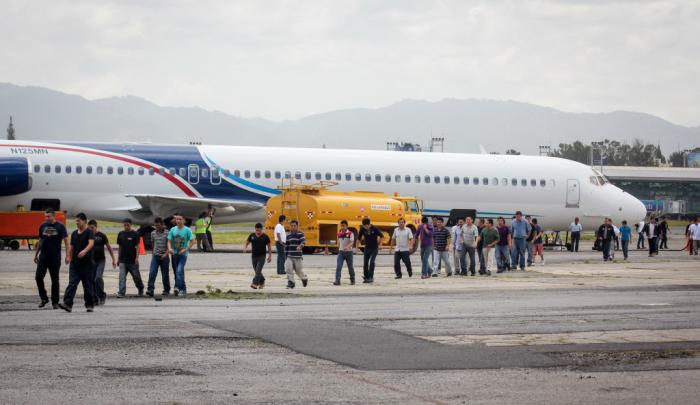
The President
The White House
1600 Pennsylvania Avenue
Washington, DC 20500
July 18, 2014
RE: Fair Treatment for Unaccompanied Central American Children
Dear Mr. President:
The Alliance to End Slavery and Trafficking (ATEST) is a U.S. based coalition that advocates for solutions to prevent and end all forms of human trafficking and modern slavery around the world. We are writing to express our concerns about calls by the administration for changes to the Trafficking Victims Protection Reauthorization Act of 2008 (“TVPRA”) and administrative responses intended to speed up the removal process. These changes would weaken legal protections for unaccompanied children and make victims of human trafficking particularly vulnerable by curtailing access to due process, legal representation, and child-appropriate services.
Specifically we are concerned about proposed changes to the Section 235 of the 2008 TVRPA. The TVPRA provides the tools necessary to combat trafficking and modern slavery at home and abroad. It was originally signed into law in 2000 and reauthorized unanimously in 2008.
We are deeply concerned that the administration will circumvent the protections of the bipartisan Trafficking Victims Protection Reauthorization Act (TVPRA) of 2008 and remove the children apprehended at the border through a non-judicial process. Instead of affording these children proper screening for trafficking and persecution, as well as the opportunity to receive fair and full consideration of their legal claims before an immigration judge, the administration appears to propose to quickly remove them without access to legal counsel. Removals would follow cursory screenings that have already proven entirely inadequate to identify genuine refugee claims among Mexican children.
Traumatized children, including victims of human trafficking, do not open up immediately. They often need time in an appropriate setting not only to express their true reasons for fleeing to the United States, but also to be interviewed by the right individuals – namely, those who have expertise and training in human trafficking, as well as child welfare and development.
Congress gave consideration to the unique circumstances of children when it unanimously passed the bi-partisan TVPRA in 2008. The law includes protections such as the facilitation of counsel and the appointment of child advocates. These provisions help ensure that unaccompanied children from non-contiguous countries receive proper care and that their requests for asylum and other legal relief are processed fairly and in a way that is consistent with age and development.
Recent proposed administration policy changes and bills put at risk existing legal protections, jeopardizing the lives of children seeking safety in the United States. Undermining due process is not the right answer, and it certainly will not appease the criticisms of those who have been calling for more punitive and aggressive enforcement. The cost of pushing vulnerable children back into dangerous or deadly situations is simply too high. Moreover, given the violence in the key sending countries, we question whether changes in law would have a substantial impact on the flow of children to the United States.
We recognize the challenges and pressures you face as you work toward a just solution for the unaccompanied immigrant children. We are encouraged that Congress is considering additional funding to both address the conditions of the children as well as provide for more rapid consideration of the status of these children and their safe repatriation. These and additional efforts next year appear to be a better approach than reducing the protections these children deserve. We hope that you will exercise your good judgment in adjusting policies to serve child victims of human trafficking, as well as the interests of the United States.
cc: The Honorable Jeh Johnson, Secretary of the Department of Homeland Security
The Honorable Eric Holder, Attorney General
The Honorable Sylvia Mathews Burwell, Secretary of the Department of Health and Human Services
ATEST is a diverse alliance of U.S.-based human rights organizations, acting with a shared agenda to end all forms of modern-day slavery and human trafficking domestically and globally. ATEST member organizations include: Coalition to Abolish Slavery and Trafficking (CAST), Coalition of Immokalee Workers (CIW), ECPAT-USA, Free the Slaves, International Justice Mission, Polaris Project, Safe Horizon, Solidarity Center, Verité, Vital Voices Global Partnership, and World Vision.
About World Vision:
World Vision is a Christian humanitarian organization conducting relief, development, and advocacy activities in its work with children, families, and their communities in nearly 100 countries to help them reach their full potential by tackling the causes of poverty and injustice. World Vision serves all people regardless of religion, race, ethnicity, or gender. For more information, please visit www.WorldVision.org/media-center/ or on Twitter @WorldVisionUSA.
Highlights
- Alliance to End Slavery and Trafficking (ATEST) is a U.S. based coalition that advocates for solutions to prevent and end all forms of human trafficking and modern slavery around the world
- Coalition concerned about calls to change or repeal parts of the Trafficking Victims Protection Reauthorization (TVPRA) act in light of border crisis
- Protections in TVPRA essential to keep victims of human trafficking safe no matter where they’re fleeing from